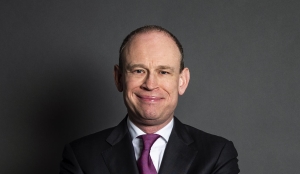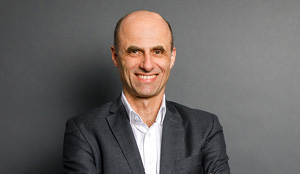Competitive Edge: Competition & EU law news - February 2020
Keeping you up to date on Competition & EU Law developments in Europe and beyond
Apple Pay under Competition Law Scrutiny
In October 2019, it was reported in the press that DG COMP had opened a competition law investigation against Apple in relation to its Apple Pay service. While no information is publicly available on the exact subject-matter of that investigation, we believe that the issue of the so-called "NFC antenna" in iPhones is a part, if not a major part, of that investigation. In this article, we deal with some of the competition law issues that have been raised over the years in relation to Apple Pay, and discuss some of the issues that, we believe, must be discussed as part of the Apple Pay investigation.
Four Member States urge competition reform to clear path for 'European champions'
President Ursula Von der Leyen's pledge to preside over a "geo-political" Commission is being put to the test by intense pressure from four large countries which are insisting on rapid competition law reform. In a strongly worded letter sent to Executive Vice President Margrethe Vestager on 4 February, France, Germany, Italy and Poland pushed for an action plan in the next weeks in order to clear the path for "European champions".
Bird & Bird news
- The interplay between data protection & competition law - recorded webinar
- Payments Regulatory 2020 Outlook - recorded webinar
- Our online Dawn Raid Game is now available in Japanese!
- Results of our Newsletter Feedback Survey now available
- Speaking badly about your competitors’ products could become a competition law problem
- Upcoming speaking engagements at Competition & EU law conferences
Updates from our network:
EU
Commission finalises investigations into licensing and distribution practices
Belgium
Suspension of network sharing in Belgium
Czech Republic
The Czech competition authority cleared a merger in the banking sector
High Court finds illegal exchange and coordination of prices between construction groups
France
Competition authority published its priorities for 2020
Supreme Court annuls EUR 211 million fines in relation to interbank fees
Hungary
Crackdown on feeding false data to the GVH
Italy
ICA imposes EUR 228 million fine for anti-competitive cartel between the main Italian telecommunication operators
Poland
Volkswagen ordered to pay record penalty for exhaust gas emissions scandal
UOKiK conditionally approves a cable television deal
Spain
The CNMC launches a public consultation to clarify the concept of "effective compliance program"
The Netherlands
Court of Appeal rules that cartel damages time limits must run until the end of all appeals against the original infringement decision
UK
CMA serves initial enforcement order in Just Eat and Takeaway.com merger
EU
Commission finalises investigations into licensing and distribution practices
On 30 January 2020, the Commission imposed a fine on NBCUniversal for the restriction of sales of film merchandise relating to Minions and Shrek, among others.
In June 2017, the Commission opened investigations into the licensing deals entered into by Nike, Sanrio (Hello Kitty), and NBCUniversal respectively. NBCUniversal had been the last of the three to be fined, with Nike and Sanrio already sanctioned by the Commission in 2019 for their restrictions of cross-border sales.
NBCUniversal was fined EUR 14.3 million for including several restrictions in its non-exclusive licensing agreements with traders. In particular, the Commission found that NBCUniversal:
- Imposed direct measures restricting out-of-territory sales by licensees, such as express prohibitions, obligations to notify out-of-territory sales, limitations of the languages used on the merchandise products, and obligations to pay to NBCUniversal revenues generated from out-of-territory sales;
- Imposed direct measures restricting sales beyond allocated customer groups, such as clauses explicitly prohibiting these sales and obligations to concede profits generated by these sales;
- Imposed direct measures restricting online sales, such as clauses prohibiting all online sales, clauses prohibiting out-of-territory online sales, or clauses only allowing online sales on the websites of specific retailers;
- Obliged licensees to pass on these sales restrictions to their customers; and
- Implemented a series of indirect measures to encourage compliance with the sales restrictions. For example, NBCUniversal carried out audits of its licensees and terminated the contract where it was discovered that the restrictions were not adhered to.
This decision adds to the previous decisions, clarifying that customer group allocations may also breach competition law. Consequently, not only is strict market partitioning illegal, but softer means of dividing markets will also be considered illegal in specific circumstances. Likewise, this decision shows that even a system of non-exclusive contracts can be restrictive if it is set up in such a way that overlaps between licensees are kept to a minimum. Finally, these three investigations concentrated mainly on restrictions in the offline world, while Guess (December 2018) focused on similar restrictions online. Together, these four cases read as a rulebook on the Commission's current thinking on licensing and distribution practices.
Belgium
Suspension of network sharing in Belgium
On 8 January, the Belgian Competition Authority ("BCA") imposed an interim measure to temporarily suspend the joint venture ("JV") between Orange and Proximus, two of the three main telecom players in the Belgian market.
The cooperation between Orange and Proximus relates to the sharing of their mobile network infrastructure (e.g. masts, antennas, base stations) and of fixed cost related to this infrastructure (e.g. energy and transmission costs, repair and maintenance). However, the agreement does not extend to sharing of spectrum and core network elements. Initially Telenet, the third market participant, was negotiating to join the JV, but network sharing proved difficult as both Proximus and Orange use Huawei telecommunications equipment, while Telenet has adopted ZTE's products. Once it was clear that cooperation between the three would not be possible, Telenet filed a complaint with the BCA.
The BCA decided the following:
- Proximus and Orange are not allowed to transfer personnel to the JV. This measure may be partly connected to the strong protests voiced by Proximus trade unions opposing the outsourcing of staff.
- Proximus and Orange are allowed to continue the preparation of the JV; they are allowed to search for new personnel and to send RFPs for the acquisition of network infrastructure so long as these do not lead to agreements which bind the JV.
The suspension of the JV will remain in force until 16 March 2020. The Belgian Institute for Postal services and Telecommunications ("BIPT") is due to give advice by 9 March 2020. Therefore, the BCA decided not to definitively suspend the JV until they has seen the opinion of the BIPT. The BCA however retains the power to extend the suspension beyond the current 16 March date. The BCA justified the limited duration of the suspension by stating that "in view of the possible positive effects of the cooperation and the time needed for the BCA to assess the merits of the complaint, a suspension of the cooperation until the final decision on the complaint can currently not be considered proportionate".
Czech Republic
The Czech competition authority cleared a merger in the banking sector
On 6 February 2020, the Office for the Protection of Competition (the “Authority”) cleared the merger between competitors Moneta Money Bank and WÜSTENROT – stavební spořitelna a.s.. ní banka a.s.. The acquired companies mainly operate in the area of providing financial services relating to building savings accounts, provision of building savings loans, bridging loans and in the area of mortgages and related services.
The Authority concluded that the concentration of undertakings will not lead to a substantial distortion of the competition in the relevant market.
Find the relevant press release here (in Czech only).
Denmark
High Court finds illegal exchange and coordination of prices between construction groups
On 7 January 2020, the Danish High Court (“High Court”) found the two construction groups, Jorton A/S and H. Skjøde Knudsen A/S, guilty of having infringed the Danish Competition Act by exchanging prices and coordinating tenders on several construction contracts.
The High Court found that the two construction groups had coordinated tenders in relation to three construction contracts during 2012 and 2013, which were all related to the construction of a university and a school in Odense, Denmark.
Exchanging commercially sensitive information and aligning prices between competitors is generally considered to restrict competition on the market. In this specific case, the two construction groups coordinated their submission for tenders which according to the High Court ultimately lead to higher prices and/or lower quality for the awarding authority.
The High Court concluded that the preceding information exchange and alignment of the bidding prices had as its object the restriction of competition. Therefore, the High Court imposed a fine on both Jorton A/S and H. Skjøde Knudsen A/S of respectively DKK 3 million and DKK 2 million. In addition to the imposition of a fine on the construction groups themselves, fines of DKK 75.000 and DKK 50.000 were also imposed on two executive employees of the involved companies.
For more information, please refer to the judgment of the High Court available in Danish here.
France
Competition authority published its priorities for 2020
The French Competition Authority (“FCA”) published in mid-January its priorities for 2020 which include in particular the competition issues in the digital sector, a focus on the environment and sustainable development, competition advocacy with a strong focus on trade associations and unions and the upcoming transposition of the ECN+ Directive.
This year again, competitive issues in the digital sector remain at the forefront of the FCA's roadmap. The authority announced it intends to work along three lines: (i) sanctioning more rapidly anti-competitive behaviour of digital players, (ii) creating a specialised ”Digital Economy Unit” and (iii) launching an in-depth reflection on the redefinition of the tools and objectives of competition policy in the digital economy. Online advertising, collection and exploitation of personal data, the use of algorithms and digital financial services will be particularly monitored. The FCA also announced that it plans to start considering the links between competition law and environmental and sustainable development issues. Anti-competitive practices that address these issues will therefore be especially targeted.
The FCA also plans to further enhance competition advocacy by launching a specific working group with businesses to identify the most effective compliance tools and best practices to prevent competition risks and raise awareness among businesses. Likewise, the FCA will publish several studies in the course of 2020 (on behavioural remedies/to help trade associations and unions to identify anticompetitive practices and behaviours putting them at risk). The FCA’s agenda for 2020 also includes the transposition of the ECN+ Directive which aims to harmonise the operating rules of national competition authorities in Europe. Such transposition will in particular strengthen the FCA’s powers and significantly modify the FCA's fining policy. Finally, the FCA confirmed that the situation in the retail sector, public procurement and French overseas territories will continue to be closely monitored.
For more information, the FCA’s press release (in English) is available here.
Supreme Court annuls EUR 211 million fines in relation to interbank fees
A new development in the judicial saga around the 2010 decision by which the FCA imposed a EUR 384.9 million fine on 11 French banks for agreeing on the introduction of unjustified interbank fees during the transition towards a new digital system for processing checks. On 29 January 2020, the French Supreme Court annulled the fines imposed on 10 of these banks (one of the banks did not lodge an appeal).
As a reminder, on appeal in 2017 (following a first review by the Supreme Court in 2015), the Paris Court of Appeal lowered the total amount of the fine to EUR 211 million. In its decision, the Court of Appeal concluded that the restriction of competition at stake was a “by object” restriction but, according to the Supreme Court, it did not demonstrate the sufficient degree of harm to competition caused by the interbank commission. As a result, the Supreme Court ruled that the Court of Appeal did not apply a sufficiently restrictive interpretation of the concept of a “by object” restriction of competition. The classification as either a “by object” or “effect” restriction of competition is relevant, as for the former there is no need to establish the anti-competitive effects on the market.
The Supreme Court also stressed that the lower court deprived its decision of legal basis by not clarifying the elements taken into account to conclude that the practices at stake have a negative effect on the market structure.
As a result, the Supreme Court annulled the lower court ruling. The case will now be examined again by the Paris Court of Appeal.
The Supreme Court’s decision (in French) is available here.
Hungary
Crackdown on feeding false data to the GVH
In December 2019, the Hungarian Competition Office (“GVH”) acknowledged the notification of the acquisition of SáGa Foods Zrt. by Master Good Kft. without raising doubts (ÖB-0052/2019/6). After the implementation of the merger, the merging parties issued a press release, which was also sent to the Hungarian News Agency for further distribution, stating that the merged entity is the market leader in manufacturing poultry products in Hungary with a market share above 40%. The GVH noticed that the market share data in the press release contradicted those submitted by the parties in the notification procedure and therefore initiated a procedure to examine whether the parties provided false data to the GVH (Vj/1/2020).
This is another example of the GVH’s vigilance in relation to notified mergers and highlights the trend in the GVH cracking down on the provision of false or misleading data in merger notification and approval procedures. Earlier cases included (i) the Diófa Alapkezelő case (Vj/14/2017; real estate), (ii) the Infineon-Cree case (Vj-15/2017; semi-conductors), and (iii) the DIGI-Invitel case (Vj/31/2018; telecoms). In these cases, the GVH revoked its acknowledgment or approval of the merger and imposed a fine in the amount of HUF 7 million, HUF 75 million and HUF 90 million, respectively. The GVH ultimately approved all three mergers in repeated merger control procedures.
You can find the press release regarding the initiation of the SáGa Foods case here (in Hungarian). The GVH’s investigation regarding the alleged provision of false data is pending.
Italy
ICA imposes EUR 228 million fine for anti-competitive cartel between the main Italian telecommunication operators
On 7 February 2018, the Italian Competition Authority (“ICA”) initiated an investigation against the major fixed and mobile operators (TIM S.p.A, Vodafone Italia S.p.A, Fastweb S.p.A and Wind Tre S.p.A). The investigation was aimed at verifying whether the companies had coordinated their commercial strategy on the frequency of renewal and billing of offers in the fixed and mobile telecommunication services retail markets, including through their trade association (Assotelecomunicazioni).
According to the ICA’s preliminary allegations, the operators met the necessary requirements to renew offers and bill the services provided on a monthly or multi-monthly basis by coordinating their commercial strategies and practices. These requirements were first introduced by AgCom Resolution n. 121/17/CONS, which was limited to fixed services and then extended to mobile telecommunication services by the Legislative Decree no. 148/2017 (converted by Law no 172/2017).
On 31 January 2020, the ICA confirmed the allegations and sanctioned the telecommunication operators for participation in an anti-competitive cartel with regard to the repricing carried out in the return to monthly billing, preserving the increase in tariffs determined by the initial change in offer renewal frequency (from one month to four weeks) and, at the same time, restricting the possibility for consumers to benefit from fair competition between operators when exercising their right of withdrawal.
In the present case, the ICA applied interim measures for the first time in a cartel proceeding. These measures were appropriate, in the ICA’s view, to prevent the effects of the cartel from continuing by requiring repricing by the operators and therefore leading to differentiated price reductions for operator’s customers. How and whether such measures have been implemented by the companies was relevant in determining the amount of the fines applicable to each company under the proceedings.
For more information please find the ICA decision (in Italian) here.
Poland
Volkswagen ordered to pay record penalty for exhaust gas emissions scandal
Following four years of proceedings, the Office of Competition and Consumer Protection (''UOKiK'') fined Volkswagen Group Poland (a Polish importer of Volkswagen Group cars) for misleading customers about the level of exhaust gas emissions and affecting how consumers’ legitimate complaints were considered by car dealers.
UOKiK is yet another authority to complete its proceedings in the exhaust gas emissions case. Between 2008 and January 2016, Volkswagen engaged in practices infringing consumers’ collective interests. The practices concerned Volkswagen, Audi, Seat and Skoda cars equipped with an engine with a compression ignition, in which optimising software was installed. The software recognised that the car was at a test station and reduced nitrogen oxide emissions under test conditions. Whereas in reality the emissions were significantly higher during normal use.
In its decision, UOKiK fined Volkswagen for a number of separate infringements:
- Disseminating false information in advertising materials which suggested that Volkswagen, Seat, Skoda and Audi cars were environmentally friendly and met the requirements for nitrogen oxide emissions.
- Providing incorrect nitrogen oxides emission parameters in excerpts from the certificates of conformity.
- Providing car dealers with guidelines that could affect how consumers' legitimate complaints relating to nitrogen oxide emissions were dealt with by such dealers.
The penalty for Volkswagen amounts to PLN 120.6 million (EUR 28.5 million) and is the highest sanction in the history of UOKiK for violation of the collective interests of consumers. In addition to the financial penalty, UOKiK ordered Volkswagen to inform all its consumers who bought cars with the engine in question about the decision and to also publish the decision on its website.
The UOKiK decision is not final as it can be appealed before the Court of Competition and Consumer Protection.
UOKiK's press release (in English) is available here.
UOKiK conditionally approves a cable television deal
In August 2018, Vectra notified UOKiK about its planned acquisition of Multimedia Polska (Multimedia), a competing provider of cable television and Internet access.
Following its initial assessment of the planned transaction, UOKiK initiated the second stage of its proceedings in September 2018. During that second stage, UOKiK investigated local markets for pay-TV services and broadband fixed-line Internet access, as these markets are separate from markets for digital terrestrial television and mobile Internet access. UOKiK's approach is consistent with its previous decisions.
Following its investigation, on 17 January 2020, UOKiK approved the planned transaction provided that Vectra fulfils the following conditions, which are designed to avoid significant impediment to competition in local markets where the merged entity would acquire or reinforce its dominant position. Otherwise, as a consequence consumers would be restricted in their choice of service providers.
- Vectra will sell its or Multimedia’s chain in eight towns
Vectra will set up new companies to which it will transfer both tangible and intangible assets from eight towns, including contracts with subscribers, telecommunications infrastructure, contracts with employees, accounting and technical and subscriber databases. These companies will then be sold to an independent investor that must be approved by UOKiK. Before the new companies are sold, they will be obliged to provide access to pay-TV and broadband fixed-line Internet at least at the same level Vectra or Multimedia provided. In addition, Vectra will not take any marketing actions to acquire subscribers until the companies are sold.
- Vectra will allow its subscribers from 13 towns to change service providers
Within seven months of the decision becoming valid, Vectra must notify its customers that during the next nine months they may terminate the contract for access to pay-TV and/or broadband fixed-line Internet free of charge.
On 31 January 2020, Vectra completed the transaction. While Vectra and Multimedia were respectively the second and third largest players in the nation-wide market, today the combined entity is the biggest cable television operator in Poland.
UOKiK's press release (in English) is available here.
Spain
The CNMC launches a public consultation to clarify the concept of "effective compliance program"
On 3 February 2020, the Spanish Competition Authority (the "CNMC") launched a public consultation with the aim of developing a comprehensive guide on antitrust compliance programs.
The consultation essentially focuses on what constitutes an effective compliance program. Regulators, companies, lawyers and citizens are invited to submit their views until 29 February 2020.
Guidance on what the CNMC would consider effective compliance programs may have significant legal implications. On the one hand, the CNMC has recently announced that effective compliance programs could lead to reduction of fines. On the other hand, under public procurement rules, competition law offenders can be exempted from the ban to enter into contracts with the public administration if they implement "appropriate measures" (meaning effective compliance programs) to prevent future infringements.
The CNMC has already shared a draft guide including a number of indicators of an effective compliance program such as:
- A public declaration of compliance with competition law as part of the company's culture;
- A risk map adapted to each business area, the adoption of customised protocols to reduce and prevent the identified risks and control measures to ensure compliance with the program;
- Annual trainings for all employees, which must be adapted both to the company's general risks and to those specific for each position. Standard trainings that merely outline basic notions on competition law will not be considered as "effective";
- Implementation of an anonymous reporting channel (i.e. a whistle-blower policy) and ways to request legal advice;
- An independent controller in charge of monitoring the program, who must be provided with adequate financial and human resources based on the size of the company;
- Constant review and modernization of the program; and
- The adoption of disciplinary measures for breaches of the program, including dismissal of those employees responsible for the infringement. Indeed, the CNMC assesses very positively the introduction of these clauses in employment contracts, particularly for senior management.
The CNMC states that involvement of senior managers in an anticompetitive infringement might show the lack of effectiveness of the compliance program. In addition, the CNMC considers that an incentive policy that rewards behaviours that could be considered risky from a competition law perspective would also put into question the effectiveness of the program.
For more information, please find the official draft guide here (in Spanish).
The Netherlands
Court of Appeal rules that cartel damages time limits must run until the end of all appeals against the original infringement decision
On 4 February 2020, the Amsterdam Court of Appeal (“Court of Appeal”) ruled that cartel damage claims that were filed by claim vehicle CDC against Kemira were not time-barred under Spanish, Finnish and Swedish law. The Court of Appeal also dismissed Kemira’s challenge to the way in which the damage claims had been assigned to CDC. Especially the ruling on the applicable limitation periods is ground-breaking and could increase limitation periods for (civil) follow-on damage actions against cartel participants by several years.
CDC’s claims rest on a 2008 European Commission decision that fined eight companies for running a cartel from 1994 to February 2000 that fixed prices and shared markets for the bleaching chemical sodium chlorate. CDC secured claims from 10 groups of pulp and paper makers from various EU member states and in 2011 CDC filed an action for damages before the Amsterdam District Court (“District Court”), seeking around EUR 61,1 million in damages including interest from Kemira. In 2017 the District Court ruled that these claims were by-and-large time-barred.
The Court of Appeal overturned the judgment of the District Court insofar as it established that the claims of CDC were time-barred under Spanish, Finnish and Swedish law. Based on a detailed assessment of the national laws and the EU law principle of effectiveness, the Court of Appeal notably concluded that EU law claimants must be able to await the outcome of (all) the administrative appeals against the (cartel) infringement decision. This applies all the way until the final ruling in relation to the infringement decision by the highest administrative court. According to the Court of Appeal, even the limitation period for CDC’s actions for damages against Kemira, which did not file an appeal against the infringement decision of the competition authority, must run until all administrative appeals, by all addressees of the infringement decision, are completed. Otherwise victims of cartels may have insufficient clarity as to the liable cartel members, the scope of the cartel infringement and damage of the cartel in order to file their action for damages in court.
The Court of Appeal referred the case back to the District Court in order to now review the merits of CDC’s claims.
This is of course only the interpretation of one national court – albeit an experienced one in cartel damages claims – and there is no guarantee that other courts will adopt the same approach. However, with limitation periods increasingly in the spotlight in damages claims, it is likely that there will be further disputes on this issue, and the conclusion reached by the Amsterdam Court, based on the Cogeco judgment of the Court of Justice of the EU, is likely to be influential.
UK
CMA serves initial enforcement order in Just Eat and Takeaway.com merger
The Competition and Markets Authority (“CMA”) is currently investigating Takeaway.com’s acquisition of UK-listed Just Eat for £5.9 billion (see link). Shares in the combined company, Just Eat Takeaway, started trading on 3 February. However, the CMA’s initial enforcement order prohibits the companies from integrating or transferring ownership while the CMA considers the competition implications of the deal. This means in practice that the companies cannot transfer business secrets or knowledge, make changes or transfers of key staff and cannot share information technology and customer and supplier lists for as long as the enforcement order is in place. Furthermore, Takeaway.com and Just Eat are obliged to separately report to the CMA every fortnight to confirm compliance with the order. While merging companies can choose to formally notify the CMA of a merger and in doing so avoid the risk of the deal being investigated at a later stage, Takeaway.com chose not to do this.
The CMA will no doubt factor into its decision the increasing global consolidation in the food delivery market – Just Eat/Hungry House, Takeaway/Delivery Hero, Uber Eats/Zomato and Caviar/DoorDash to name a few. The UK market is already concentrated with the three key players being Deliveroo, Just Eat and Uber Eats. Furthermore, at present, Amazon’s planned minority stake in Deliveroo, Just Eat’s biggest British rival, is under a Phase II review over concerns it will harm competition in both the restaurant delivery and online grocery sectors (see link). The central issue in both the Amazon/Deliveroo and Just Eat/Takeaway.com mergers is whether the deal would prevent a large new entrant from entering the UK food delivery market. With operations in 11 European countries, Takeaway.com is one of Europe’s biggest players and the CMA have stated that “Takeaway.com could have been well-placed to enter the UK market, if the merger hadn’t happened, and compete with Just Eat.”
If the CMA does approve the Just Eat/Takeaway.com merger, Just Eat Takeaway will become one of the largest food delivery companies in the world and the merger will be one of UK’s largest tech deals in recent years.
Recorded webinars
Understanding the interplay between data protection & competition law
Competition partner Anne Federle and Data Protection & IP/IT Partner Benoit Van Asbroeck recently explored three case studies on data access claims under competition law and data privacy requirements in a webinar hosted by OneTrust DataGuidance. The webinar explores if, and how, third parties can obtain access to personal data collected by a company based on competition law. By discussing three unique scenarios, the speakers provide clear insight into how companies can effectively manage data access requests, and how best to approach making such a request. Watch the recording of the webinar here.
Payments Regulatory Outlook 2020 webinar
On 21 January 2020, members of our international payments team shared their insights into the state of payments regulation and some of the legal issues that arise for businesses. Among other issues, the webinar covered:
- the EU Payment Services Directive (PSD2) open banking and UK open banking;
- PSD2 strong customer authentication;
- the EU Interchange Fee Regulation;
- the EU Cross-Border Regulation; and
- the European Banking Authority (EBA) guidelines on outsourcing.
This webinar is now available to listen to with accompanying slides on the Lexology website, for free, to anyone who signs up.
Thank you for your feedback
In the last months of 2019 we asked readers to provide feedback on our monthly Competitive Edge newsletter.
Click here to read a summary of the results of the survey.
A big thank you to everyone who participated and provided us with valuable feedback, some of which has already been put into practice in the latest editions of our newsletter.
Are you ready? Try our Dawn Raid Game in Japanese!
Our quirky 'Dawn Raid' game, used by hundreds of clients in the past two years in English and French to test their team's preparedness for a Dawn Raid by Competition Authorities, is now available in Japanese.
The interactive online game takes 15-20 minutes to complete and is available to anyone who wants to try it, free of charge. It positions the player as an in-house employee who is at work when a dawn raid occurs. The game is designed as a fun way for wider business groups to prepare their employees for a dawn raid and test their existing knowledge of what to do in certain situations. It is customizable for clients upon request (charges may apply).
This initiative demonstrates Bird & Bird's commitment to innovative client-facing technology and is part of the firm's wider Compliance & Investigations offering, which includes a Dawn Raid app and eLearning courses on Competition Compliance topics.
Click here to play the game in Japanese.
Click here to play the game in English.
Click here to play the game in French.
Did you know that speaking badly about your competitors’ products could become a competition law problem?
Following the interest raised by the article on denigration published in the September edition of our newsletter, authors Morten Nissen and Frederik Haugsted were asked to prepare an expanded article on the same topic, which was recently published by the ABA (American Bar Association) Antitrust Source publication. You can read the article here.
Upcoming speaking engagements at Competition & EU law conferences
Don't miss the next GCR TMT Live 9th Annual Telecoms, Media & Technology conference in London on March 2, where our Competition partner Hein Hobbelen will join the panel discussing Competition issues in marketplaces, self-preferencing and the use of MFNs. In-house and governmental representative tickets are complimentary.
Key topics of the conference:
- Online Advertising
- Competition issues in marketplaces, self-preferencing and the use of MFNs
- This House believes that remedies in antitrust and mergers are ineffective: What are the options?
- Is antitrust law and regulation in the EU and US up to the task in the digital sector?









